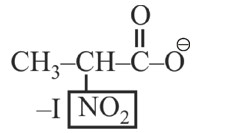The consequences of global warming may be _________.
(i) Increase in average temperature of the earth
(ii) Melting of Himalayan Glaciers.
(iii) Increased biochemical oxygen demand.
(iv) Eutrophication.
The consequences of global warming may be _________.
(i) Increase in average temperature of the earth
(ii) Melting of Himalayan Glaciers.
(iii) Increased biochemical oxygen demand.
(iv) Eutrophication.
-
1 Answer
-
This is a Multiple choice Questions as classified in NCERT Exemplar
Options (i) and (ii) are correct since 75% of the solar energy reaching the earth is being absorbed by the earth's surface and this increases its temperature. The rest of the heat radiates back to the atmosphere. The average global temperature will increase to a level, and this leads to melting of polar ice caps and flooding of low-lying areas all over the earth. Increase in the global temperature increases the incidence of inectious diseases like malaria, dengue, yellow fever etc.
Similar Questions for you
–I effect ∝ Acidic strength
+I effect ∝ Basic strength
* Most stable anion due to maximum –I effect.
* Most acidic
with increase in separation of screen from slits plane, fringe width increases.
Excessive nitrate in drinking water causes methemoglobinemia
Excessive nitrate in drinking water causes methemoglobinemia
Release of toxic/undesirable materials in the environment.
Taking an Exam? Selecting a College?
Get authentic answers from experts, students and alumni that you won't find anywhere else
Sign Up on ShikshaOn Shiksha, get access to
- 66k Colleges
- 1.2k Exams
- 681k Reviews
- 1800k Answers



